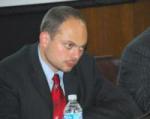Vladimir Kara Murzahttp://www.worldaffairsjournal... Few episodes better illustrate the impact of the recent protest wave on Russia’s political environment than the fate of the People’s Freedom Party. In June 2011, the opposition force established and led by Boris Nemtsov, Mikhail Kasyanov, and Vladimir Ryzhkov was denied registration and barred from elections on the pretext of 79 “irregularities” on the list its 46,148 members. One year later, at its national convention in Moscow, the party gained official status, finally becoming eligible for the ballot on all levels.
A key concession by Kremlin in the face of December’s protests—the largest since 1991—was a new law which significantly lowered the hurdles for registering political parties. At the same time the Russian government—not usually known for its deference to the European Court of Human Rights—agreed to abide by its 2011 ruling that overturned the Kremlin’s ban on the opposition Republican Party as “unjustified.” After being reinstated in the federal register, the Republicans—modern Russia’s oldest pro-democracy party, established in 1990—offered to provide the legal basis for a new unified force. The merger, resulting in the new Republican Party of Russia–People’s Freedom Party (RPR-PARNAS, by its Russian acronym), was finalized at last Saturday’s convention. (I was one of those elected to the new party’s federal council.)
“I congratulate you on the emergence of a large pro-democracy force,” said Yevgeny Yasin, 78, one of the country’s most respected economists, who attended the convention as a guest. “Russia is once again turning to democracy. I did not hope to live to see it, but it is happening.” The new party seeks to become the political voice of the middle-class protesters who have been filling the streets and squares of Moscow since December. Its declaration calls for an immediate cessation of political harassment and the release of political prisoners, meaningful reforms of the political system, and new parliamentary and presidential elections no later than 2013. The party program envisages constitutional changes that would significantly weaken the presidency (with the Cabinet formed by and accountable to Parliament), limit the president to two four-year terms during his or her lifetime, and reinstate direct district elections to the Duma. “Change in our country is inevitable,” said Kasyanov, “and the pace of this change depends solely on us.” “The more people will turn out for the protest rallies, the quicker the authorities will start a dialogue,” stressed Nemtsov, “We must bring out a million people onto the streets.” The number is not random. It was the “one-million march” through the streets of Moscow in February 1990 that forced the Kremlin to officially end one-party rule.
The first major tests for RPR-PARNAS will come in the fall: on September 15th, when the opposition is planning its next rally in central Moscow, and on October 14th, when several Russian regions will hold legislative, municipal and—for the first time in nearly a decade—direct gubernatorial elections (another December concession by the regime). As witnessed by the recent slate of local election victories for Kremlin critics, even the tightly controlled, manipulated polls in Putin’s Russia can offer an organized opposition a window of opportunity. It is up to the country’s newly unified democratic forces to seize it.


